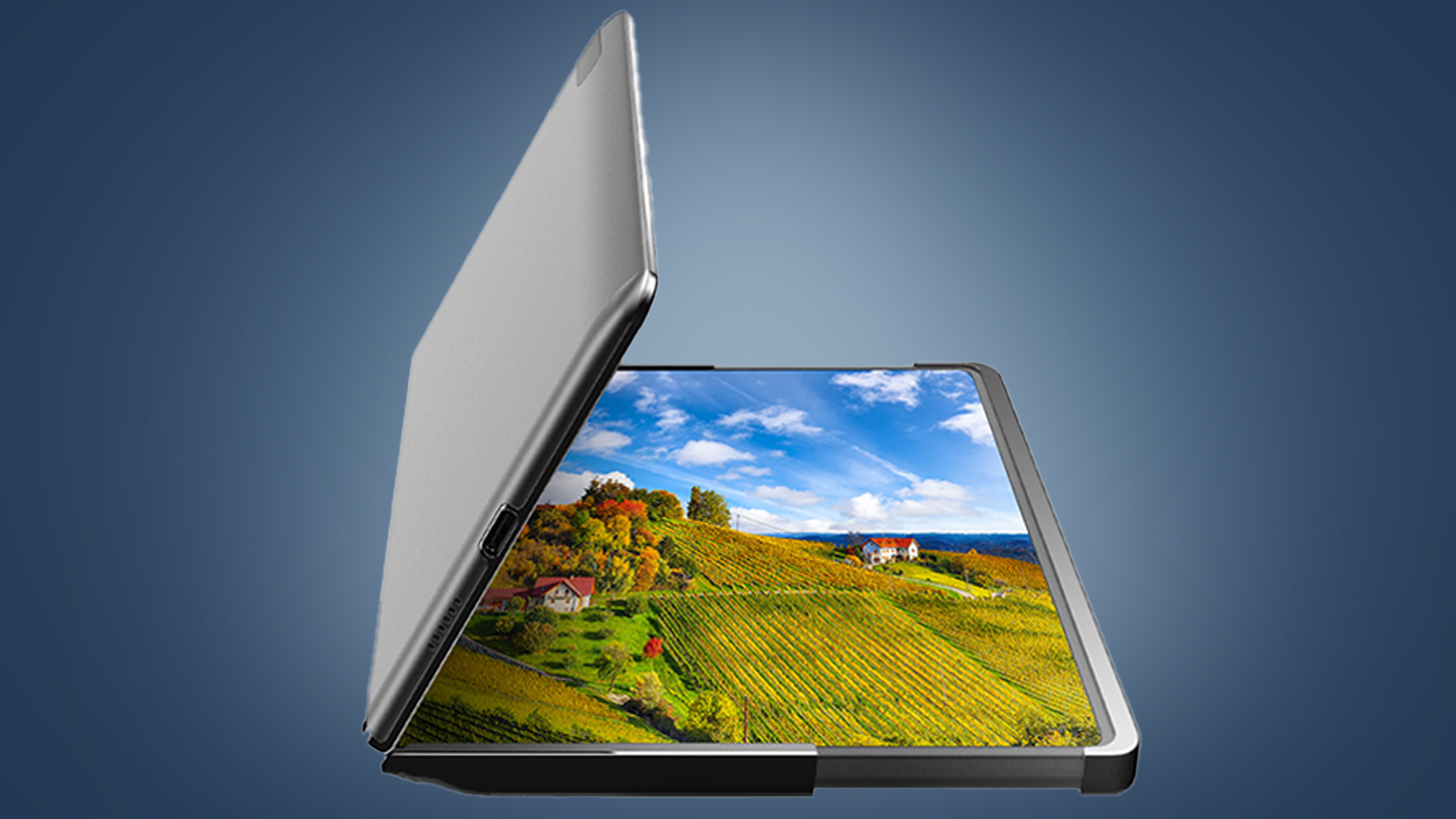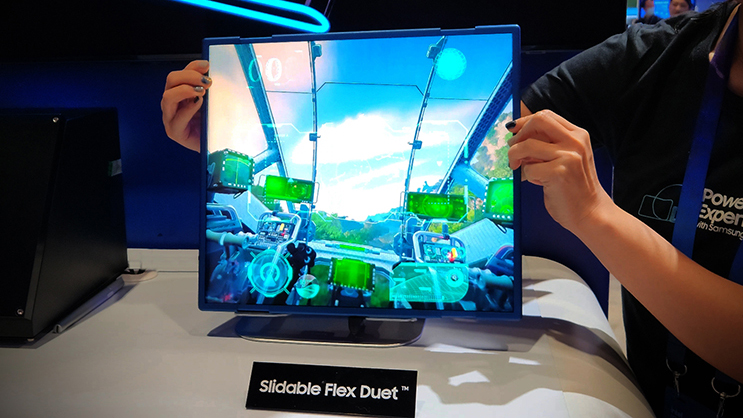What’s better than a tablet that can fold in half to become your phone? According to Samsung, it’s a foldable the screen of which can also slide out to give you even more visual real estate. But several practical limitations mean the Flex Hybrid concept, which Samsung is showing off at CES 2023, will remain closer to the whiteboard than our pockets for a while yet.
The Flex Hybrid is very much a prototype ‘smart mobile device’. It’s the first one we’ve seen that combines two types of innovative screen tech – the foldable displays that we already know (and mostly love) in phones such as the Samsung Galaxy Z Fold 4, and newer ‘slidable’ screens that Samsung has been flaunting at various trade shows for the past year.
The idea is that you’ll unfold the left-hand side of the Flex Hybrid, much like the existing Fold series. But if you want an even larger screen, you’ll be able to stretch it from a 10.5-inch 4:3 display to a 12.4-inch screen with 16:10 ratio by pulling out the rest of the display from the right-hand side, to give you a proper tablet experience from a pocketable device.
In theory, the Flex Hybrid is the kind of do-everything mobile device that we could only dream of a few years ago. But there’s good reason to believe that we’ll need to continue dreaming about it for a few years yet.
Firstly, the idea is clearly still at the early concept stage, as Samsung hasn’t revealed any specs for the display, or hinted at which products could potentially use the tech. Also, this time last year, at CES 2022, Samsung demoed its Flex G and S displays, which could fold twice in two different directions, but which have yet to be fully realized as consumer-ready products.
Fold that thought
The most likely scenario is that Samsung will need to polish its respective display technologies before they can be combined in one do-it-all tablet. On the slidables front, Samsung will be demoing two larger 17-inch prototypes with sliding screens for laptops CES 2023.
These will be called the Flex Slidable Solo, the screen on which can be expanded in one direction, and the Flex Slidable Duet (pictured above), which can be stretched in both directions to create a 17.3-inch display (from a 13-14-inch device) for gaming or watching movies.
Folding displays still a lot of refinement, though. While we’re big fans of the Samsung Galaxy Z Fold 4, its crease is still visible down the middle of the screen – and run your finger across the display and you’ll feel the crease, too. It isn’t hugely noticeable when you’re watching videos, but this is still an area for improvement before Samsung moves onto sliding foldables.
The other hurdle is that foldables remain premium products that, in the current financial climate, are hard for most tech fans to justify. The starting price of the Galaxy Z Fold 4, for example, is $1,799 / £1,649 / AU$2,499. Adding a slidable component to that display – however exciting that would be – will only make that price tag even more prohibitive.
Factor in the question marks around the long-term durability of foldables, and the current limitations of Android tablet apps, and you can see that it’ll definitely be a few years before a Flex Hybrid becomes a viable product. But we’ll certainly be first in the queue to try one out – and we’ll be doing our best to hunt one down at CES 2023, if it indeed exists.









